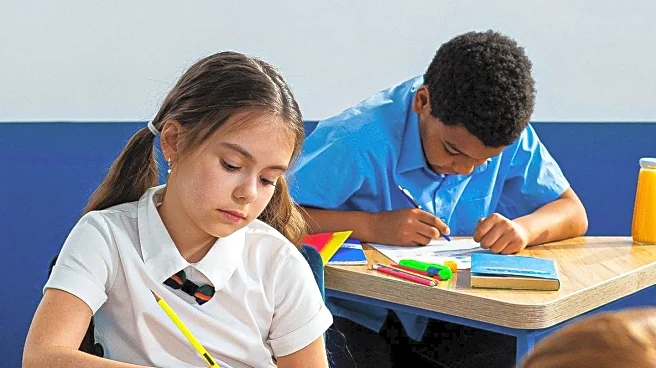What's Happening?
A growing trend on social media platforms, particularly TikTok, involves individuals creating personal curriculums to guide their own learning journeys. Clare Yeo, a copywriter from Singapore, is among those participating by studying classic texts to explore themes of good and evil. This movement, initiated by Elizabeth Jean, encourages people to set their own study plans without the pressure of grades or deadlines. Participants are engaging with diverse topics, from capitalism's impact on female identity to the physics of beauty, aiming to enrich their minds and combat 'brain rot' caused by overstimulation from social media.
Why It's Important?
The personal curriculum trend reflects a broader societal desire to reclaim focus and intellectual engagement amidst the distractions of modern life. It offers a counter-narrative to the fast-paced consumption of information typical of social media, promoting deeper thinking and self-directed learning. This trend could influence educational practices by highlighting the value of personalized learning experiences. It also suggests a cultural shift towards valuing intellectual pursuits for personal fulfillment rather than professional advancement, potentially impacting how individuals approach lifelong learning.
What's Next?
As the trend continues to gain traction, it may inspire more structured community learning experiences, such as book clubs or discussion groups, fostering intellectual communities outside traditional academic settings. The movement could also lead to increased interest in humanities and philosophical discussions, countering anti-intellectual sentiments in society. However, the sustainability of personal curriculums remains uncertain, as participants may struggle with maintaining motivation without external accountability.
Beyond the Headlines
The rise of personal curriculums highlights a potential shift in cultural values, emphasizing the importance of intellectual curiosity and self-improvement. It raises questions about the role of traditional education systems and their ability to adapt to changing societal needs. Additionally, it underscores the impact of social media as a tool for positive change, enabling individuals to connect over shared interests and foster a sense of community around learning.









